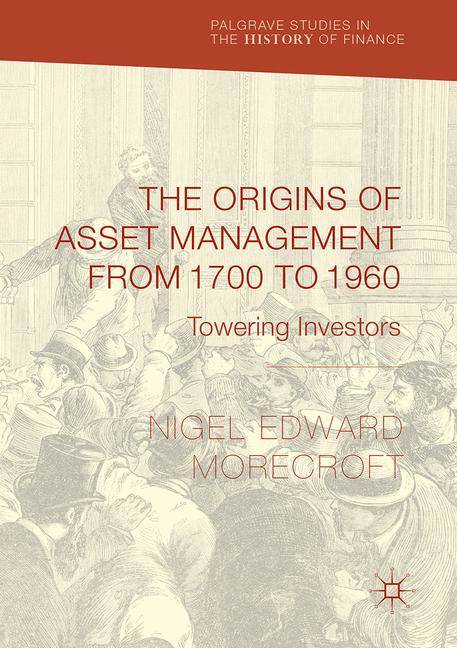
Bedankt voor het vertrouwen het afgelopen jaar! Om jou te bedanken bieden we GRATIS verzending (in België) aan op alles gedurende de hele maand januari.
- Afhalen na 1 uur in een winkel met voorraad
- In januari gratis thuislevering in België
- Ruim aanbod met 7 miljoen producten
Bedankt voor het vertrouwen het afgelopen jaar! Om jou te bedanken bieden we GRATIS verzending (in België) aan op alles gedurende de hele maand januari.
- Afhalen na 1 uur in een winkel met voorraad
- In januari gratis thuislevering in België
- Ruim aanbod met 7 miljoen producten
Zoeken
€ 145,19
+ 290 punten
Uitvoering
Omschrijving
This book explores the origins and development of the asset management profession in Britain as a distinct activity within financial services, independent of banks and stockbrokers. Specifically, it identifies the main individuals and institutions after 1868 who established the profession. The book draws a distinction between banks (short-term deposit-taking) and asset management (an investment service with longer-term objectives). It explains why some banks fail but asset management businesses generally do not. It argues that asset management has been socially useful and has had a beneficial impact on the development of securities markets by offering choices to savers as an alternative to banks, improving the efficiency of capital allocation, re-cycling excess savings productively and enabling a range of investors - from institutions to individuals - to benefit from thoughtful, long-term investing.
Specificaties
Betrokkenen
- Auteur(s):
- Uitgeverij:
Inhoud
- Aantal bladzijden:
- 343
- Taal:
- Engels
- Reeks:
Eigenschappen
- Productcode (EAN):
- 9783319518497
- Verschijningsdatum:
- 3/05/2017
- Uitvoering:
- Hardcover
- Afmetingen:
- 159 mm x 25 mm
- Gewicht:
- 596 g

Alleen bij Standaard Boekhandel
+ 290 punten op je klantenkaart van Standaard Boekhandel
Beoordelingen
We publiceren alleen reviews die voldoen aan de voorwaarden voor reviews. Bekijk onze voorwaarden voor reviews.









